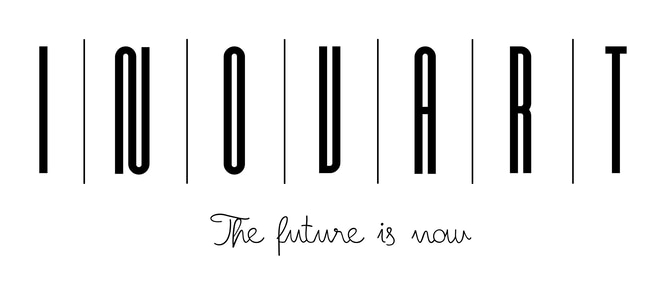The Culture of Autonomy, “ownership” and the power of trust
Renata Duarte
3/17/20255 min read


The Culture of Autonomy, “ownership” and the power of trust:"
Reflections on "Zalando" and some of my own experiences in Designing for retail
[written by Renata Duarte - 17/Mar/25 | 5 min read]
Once upon a time, I came across a story about a janitor who was cleaning floors in a company with a strong culture of autonomy (was it Ford, maybe? Not sure anymore). Anyway, when asked what he was doing, he replied: “I’m helping people move from point 'A' to point 'B' in the best way possible.” Wow. That answer stuck with me. He wasn’t just cleaning floors; He was aware, trusting and feeling part of the company’s purpose. He also had autonomy to search (and find) his own meaning to his work. Finally, it made me think about a sense of belonging as the man gave his wholehearted answer, so willingly.
In fact, this “sense of ownership” can be a truly transformative value. Long story short, it happens when an organization makes it their priority to empower their people to embrace ambiguity, take responsibility and make decisions. And, at the same time, makes them feel genuinely seen, heard and respected.
This isn’t just a feel-good concept — it’s backed up by a wealth of numerical data (of growth, imagine that?!). Studies show that teams with autonomy are consistently more productive, creative, and engaged. It's a virtual cycle, where every part (aka. stakeholder) feels invested in themselves and this contributes for the success of the whole.
Okay, that sounds all really good, but how does one build this type of culture?
(If you’re asking yourself that question right now, I’m glad for the both of us).
***
I’d like to take a moment now to talk about Zalando, the European fashion giant that started out as an online shoe startup in Berlin in 2008: When founders Robert Gentz and David Schneider presented their idea of selling shoes online, the response they received was, well… discouraging. But they persisted, driven by a bold vision and a commitment to innovation (IDEO created a lab in Germany based on this challenge and follwing partnership with Zalando).
The reason I’m highlighting Zalando here is not (only) because of their amazing growth, but because of the way they’ve always nurtured a culture of “ownership” and autonomy. From the very beginning, Zalando has encouraged employees to take risks, learn from failures, and constantly iterate (“think big”, “prototype to learn”, etc.).
For example, when their campaign to enter the Holland's market failed (twice!), they didn’t back down. Instead, they learned to adapt to local markets, a lesson that now defines their global strategy. Today, Zalando operates in 25 countries, employs over 15,000 people, and has built a thriving fashion and lifestyle ecosystem.
But what really sets them apart is their commitment to employee engagement. They’ve created forums like zBeat (a quarterly feedback survey) and Culture Talks (open dialogues with leadership) to ensure all voices are heard. They even have voluntary employee representation bodies, such as the International Employee Board, to promote collaboration and transparency.
The result? A workforce that feels empowered, valued and invested in the company’s success.
I first encountered Zalando from a special angle - while working at IDEO I participated in numerous exchanges of ideas and learnings about this lab - with colleagues from around the world. Since then, I have kept their story as “real life proof” of the power of trust and autonomy. “When you give people the freedom to own their work, they don’t just meet expectations, they exceed them.”
***
I find this very interesting to think about. Actually, it just made me think of another personal/professional experience I had that can also be used to exemplify the positive impact of autonomy and trust in action. Only this time, my point of view comes in the form of the “customer experience”:
Ok, so when I was living in California, I lost a MAC lipstick that I l-o-v-e-d. :( I went to buy another one online and ended up choosing the wrong shade. Frustrated, I went to a physical store to try to find the right one. When I explained my "sad story" to a consultant, she immediately smiled and showed me my purchase history, finding the exact shade in seconds. Then, without hesitation, she handed me the right brand new lipstick!, saying: "Have a good day!".
I was shocked! .
The level of confidence and empowerment from that sales consultant caused me so much surprise and joy, that it turned me into a big fan of MAC. I'd like to draw attention to the fact that I tell this story to whoever wants to listen (as an organic ambassador) of a brand that won me over without any extra investment in media, influencers, clicking on banners, nothing. And I confess that, although I definitely like it, I'm a sort of "essentialist" when it comes to makeup.
***
Similarly, at the beloved Target in San Francisco, I once bought a vacuum cleaner that was actually a "Supersonic mop". I had been living there for about 6 months then, so I was already more accustomed to certain things and decided to try it out. I actually liked it and used it a few times, but I still felt frustrated. One day, I decided to take it to the store and share my experience. The customer service employee didn't ask me any other questions, he just picked up the "thingy-thing" and refunded the full amount to my c-card. My parents, who were visiting me at the time, were equally impressed. It was a stark contrast to the experiences we have had in places where hierarchies, rules / lack of flexibility often overshadow the most important item on any customer's shopping list: feel satisfied.
***
These experiences together end up highlighting another critical point: autonomy and trust are not just internal values, they shape how customers perceive and connect with a brand.
Whether it’s a retail associate with relevant information (“smart” CRM use) that can brighten a customer’s day, or a Zalando's team member bringing their personal experiences as a design/constant improvement project – in both examples, the ripple effect is undeniable.
***
So here’s my conclusion: productivity is not about control; it’s about trust.
If you’re leading a team, serving customers or being part of an organization, ask yourself: are we fostering a culture where people feel empowered? Are we giving them the tools, freedom and support to thrive?
Because, at the end of the day, the companies that succeed aren’t the ones with the most amount of rules, I'm sure – but the ones that learn and co-create with each-other: from defining the kpi metrics like “what success means to us”, to the importance, value and accountability of each individual for achieving success for us all. Oh, and let us not forget this: the results of said success, by extension, are also shared by us. ;)
What about you, fellow reader? What’s your experience? Do you notice any of these points in your workplace or as a customer?
Let's exchange ideas in the comments!
#Leadership #Autonomy #Ownership #Zalando #FutureOfWork #EmployeeEngagement #CustomerExperience
